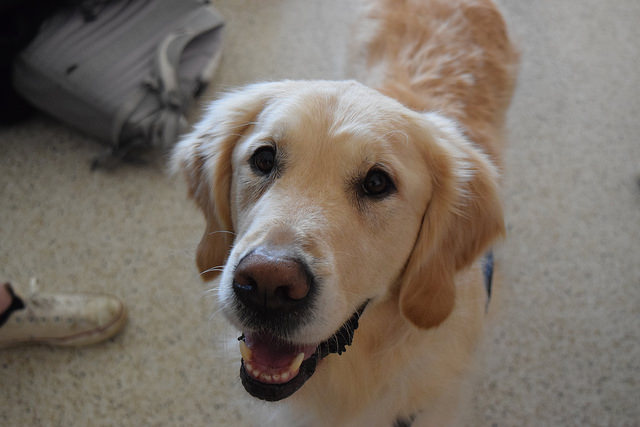My little sister was a cuter kid than me, and better at throwing temper-tantrums. So naturally, after my parents spent years listening to me whine about wanting a dog and listening to her whine about wanting a cat, we got a cat. My sister named him Licorice; had she known about the staggering body count that cat would accumulate hunting mice, chipmunks and bunnies, she might have named him something more fitting like, “Soulless Murderer.” However, that feline psychopath did open the floodgates for me to complain about favoritism just enough that my parents eventually got me my first dog, Robin, when I was eight years old.
I love my dog, as I love all dogs. I’d point out Robin has taken exactly zero lives in her 14 years of life, which leads me to the point of this article: all dogs are good dogs. Save for considerations of disease-carrying or rabid stray dogs as well as human allergies. I’m sure most people would agree, initially. It’s not an especially controversial opinion on its surface. They are man’s best friend, after all.
But then people remember that Chihuahuas exist, and all bets are off.
I would agree there is a hierarchy to dogs; Thomas Jefferson enshrined in our nation’s founding document the principle that the equality of all people is self-evident. He didn’t write anything about dogs, so we’re going to have to figure out canine equity for ourselves. Robin is a corgi, so don’t tell her I wrote this, but as a general rule I like big dogs more than small dogs. If given the option, I’d prefer to own a Labrador as opposed to a Shih Tzu. In my experience, this is a common sentiment among men, and surely disdain for small dogs is in part a function of the masculine desire to feel tough.
Undeniably, big dogs are cool. Siberian Huskies resonate with that feeling of wanting to own a dog that genuinely looks like it descended from wolves. German Shepherds have that sense of utility to them, like they could be cruising along with a K-9 police unit catching bad guys but instead are digging holes in your backyard. Yellow labs and golden retrievers have that all-American feeling to them, to say nothing of their athletic potential. Mastiffs are a good alternative option if you want to own a bear but don’t want to get killed trying to domesticate a bear. But none of that means one should write off the small dogs, especially not men. People will look at lapdogs and say they may as well be rats. I’m here to set them straight.
The fact of the matter is this: dogs are our age-old companions. We don’t know for sure when the first domesticated dogs came to man’s campfire, but anthropologists place estimates based on recovered fossils at approximately 14,000 years ago. For at least 14,000 years, in a way that is unique to the rest of the living world, humans have had a partner. Lions, tigers and bears work alone, but humans and dogs operate under the buddy system. No matter the size or breed, dogs offer unconditional camaraderie and loyalty. It’s coded into their DNA.
Therefore, we owe it to dogs of all shapes and sizes to return the favor. A poodle sitting in the purse of a Manhattan socialite is just as valuable and good a dog as a goggle-clad bulldog in the sidecar of a biker’s Harley. The point is, even if wiener dogs aren’t your cup of tea because they’re about the size of a cup of tea, they’re still good dogs to someone.
In the United States, a dog’s most common purpose is simply to be a pet making their owner happy, but it doesn’t stop there. Some dogs race, compete, hunt, act as service animals or serve with police officers and the military. Clearly, dogs do more than just make people happy. They make people better. Getting a dog can teach young children both how to take responsibility for another’s well-being, as well as how to effectively pawn off that responsibility to their parents when they get tired it. Taking responsibility is an invaluable life skill; so is effective delegating, and both can be learned from dogs of any size.
So, if there’s a call to action to be found in an opinion piece that boils down to, “I like dogs, even the tiny ones, and you should too,” it’s that there is a long-term need to reframe the way we think about breeding. The size of dogs is arbitrary, imposed by human design. But some breeds struggle to live due to genetic defects resulting from the way breeding habits, essentially forced inbreeding between dogs that are too genetically similar to be reproducing, lead to such outcomes as flat-nosed dogs like pugs struggling to breathe and being at increased risk of suffering heat strokes. This happens because we insist on tailoring dogs to our desired specifications, like preferred size. If you are pet shopping, consider buying mixed breeds rather than purebreds, don’t get caught up in any traditional size standards of which dogs are masculine or feminine and be sure to give small dogs a chance.
Dan Riley is a Collegian contributor and can be reached at [email protected].





















Colleen • Apr 1, 2019 at 8:35 pm
Great article, big fan. First let’s get one thing straight, as your sister I have to agree that yes, I was a much cuter child, however counter point I was an angel and you were a terror. Also you have to admit you now take the cake in mom and dads eyes!
amy • Mar 28, 2019 at 8:17 pm
aw, finally a good article from the op-ed section! <this amy is a dog lover!